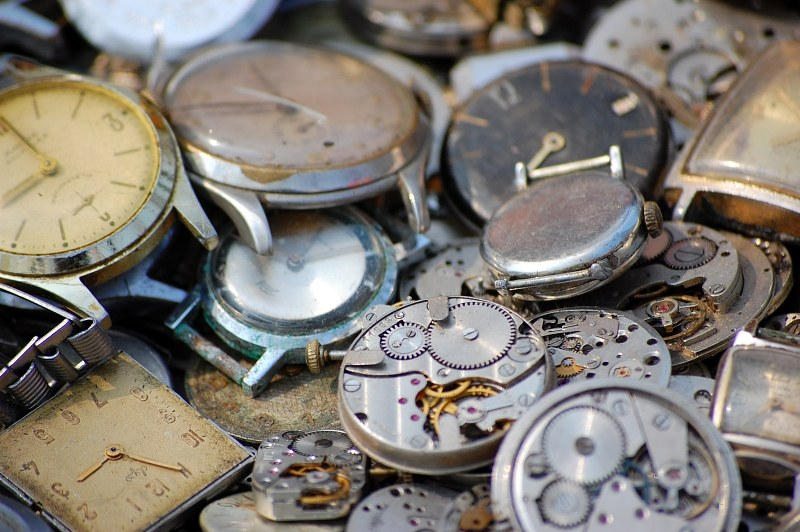So, you’ve been enjoying that beautiful new Rolex Submariner for three years now and you are still every bit in love with that mechanical wonder as the day you walked out of the showroom with it, your smile and the 904L stainless steel, equal in their brilliance. But lately when the sun hits it just so those minor scratches on the case seem to be a bit more evident than before, much like your own gray hairs in the bathroom mirror each morning. And although you’ve never been a stickler about timing rates, those scratches have got you thinking.
https://www.facebook.com/HalMartinsTX/videos/1554714127934475/
This is a common scenario all around the world, one question, how often do I service my watch, with at times seemingly too many answers, and not always the correct one. It can be confusing. With some recent changes from Rolex in their length of warranty, 2 to 5 years, and the recommended service interval from 3 to 10 years, a significant jump, people are now questioning what they thought was gospel as far as mechanical watch service is concerned. But every watch, every life and every circumstance involving the two are a little different so urgency of service can have variables in one’s mind. I read a documented story of a man inheriting his father’s Rolex Date Just which hadn’t been serviced in 25 years and still had reasonably good timing rates. At that point, he refused to open it and let the test of time continue. But there are some guidelines to follow that fit every scenario at some time or another and can be used to avoid major damage and costly repairs that may appear even before scheduled service intervals.
#5. Lubricants lose their viscosity.
Mechanical watches have more than one type of oil in them for lubricating the pivots of each gear and as with automobiles or any other lubricated mechanical part the viscosity lessens over time. That coupled with the friction and abrasion caused by the watches moving parts these oils can become dirty which continues to lessen their effectiveness. Not only is there more wear and tear on parts it also creates an atmosphere of poor time keeping.
#4. Poor time keeping or doesn’t run
COSC certification means that the timepiece will deviate no more than -4 to +6 seconds a day. That may seem like a lot of lost time since you just paid 18G’s for that new Yacht-Master II

but that is and always has been the nature of the beast, but we love that beast anyway. A little variation around these numbers can be tolerated, again of course it just depends on your personality. Some people cannot live with anything but the best numbers humanly possible while others tend to look at their fine Swiss timepiece as crossing over into the realm of fine jewelry, therefore the timing rates may not be as important as the case scratches in this persons’ mind. There is one thing though that all watch owners around the world can agree on, when the watch stops running completely, it’s time for a service
#3. Rough Setting or Winding
Now we are getting in to some of the more obvious reasons to seek out a qualified watchmaker to put your mind at ease. Rough winding and setting are signs of heavy parts usage and wear which can easily translate into the proverbial wrench in the gear box with other unaffected parts soon feeling the wrath of their failing cousins. At the first sign of this affliction it is best to stop using the watch until it has been properly attended to.
2. Broken Crystal
This problem is obvious on the surface but what many people may not realize is the damage can be even worse below the dial, out of the sight of everyone. If your watch has a day and or a date function, or any other opening in the dial such as but not limited to a moon phase complication, tiny shards of sapphire or mineral glass may enter the movement and act as an abrasive grinding agent, damaging delicate parts inside the watch and running up costly parts and service charges. The best remedy is to stop the watch immediately to inhibit further damage and visit your preferred watchmaker ASAP!
1. Moisture
I cannot look at a watch with moisture under the crystal without hearing Neil Young whisper in my ear, “rust never sleeps. ” And it doesn’t! This is the most obvious of all reasons to rush to the watchmaker. Watch companies have spent millions upon millions of dollars on research and testing to keep water out of watches, so you know when you see (sea) water under your dial you have trouble. That being said as with many things the sooner you address the problem the lesser the impact of the water will be. As I mentioned before, rust never sleeps. And if it can eat a car on the beach imagine what it will do to the delicate insides of your watches movement. Rush to your watchmaker as soon as he opens.
While watch repairs may seem daunting and costly at first glance, just think of the smile on your sons face the first time he puts on your now vintage Rolex President. It will seem like pennies.
